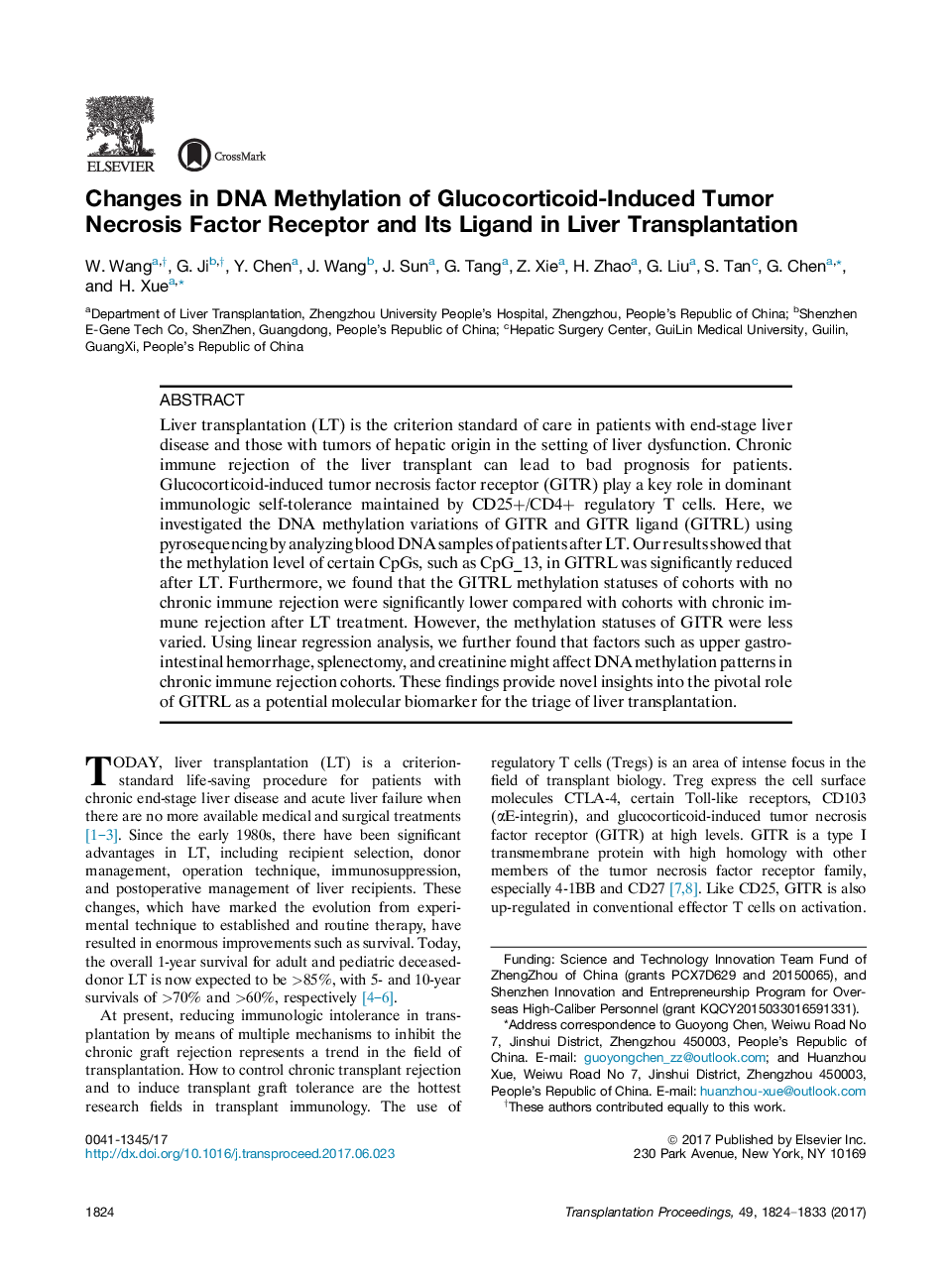| Article ID | Journal | Published Year | Pages | File Type |
|---|---|---|---|---|
| 5728638 | Transplantation Proceedings | 2017 | 10 Pages |
â¢Changes in DNA methylation of GITR and GITRL in liver transplantation was investigated.â¢Acute rejection, UGH, spleen cut, renal function, and GOT correlated with DNA methylation.â¢GITRL methylation may be a potential molecular biomarker for the triage of liver transplantation.
Liver transplantation (LT) is the criterion standard of care in patients with end-stage liver disease and those with tumors of hepatic origin in the setting of liver dysfunction. Chronic immune rejection of the liver transplant can lead to bad prognosis for patients. Glucocorticoid-induced tumor necrosis factor receptor (GITR) play a key role in dominant immunologic self-tolerance maintained by CD25+/CD4+ regulatory T cells. Here, we investigated the DNA methylation variations of GITR and GITR ligand (GITRL) using pyrosequencing by analyzing blood DNA samples of patients after LT. Our results showed that the methylation level of certain CpGs, such as CpG_13, in GITRL was significantly reduced after LT. Furthermore, we found that the GITRL methylation statuses of cohorts with no chronic immune rejection were significantly lower compared with cohorts with chronic immune rejection after LT treatment. However, the methylation statuses of GITR were less varied. Using linear regression analysis, we further found that factors such as upper gastrointestinal hemorrhage, splenectomy, and creatinine might affect DNA methylation patterns in chronic immune rejection cohorts. These findings provide novel insights into the pivotal role of GITRL as a potential molecular biomarker for the triage of liver transplantation.
